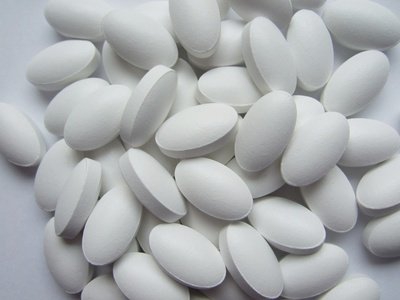German researchers have found that people who take calcium supplements could be increasing their risk of having a heart attack.
Calcium is often taken by older people to strengthen bones and prevent fractures.
But the study, published in the journal Heart, said the supplements “should be taken with caution”.
Experts say promoting a balanced diet including calcium would be a better strategy.

German researchers have found that people who take calcium supplements could be increasing their risk of having a heart attack
The researchers at the German Cancer Research Centre, in Heidelberg, followed 23,980 people for more than a decade.
They compared the number of heart attacks in people who were taking calcium supplements with those who did not.
There were 851 heart attacks among the 15,959 people who did not take any supplements at all. However, people taking calcium supplements were 86% more likely to have had a heart attack during the study.
The researchers said that heart attacks “might be substantially increased by taking calcium supplements” and that they “should be taken with caution”.
Ian Reid and Mark Bolland, researchers at the University of Auckland in New Zealand, said: “The evidence is also becoming steadily stronger that it is not safe, nor is it particularly effective.
“Therefore, the administration of this micro nutrient should not be encouraged; rather people should be advised to obtain their calcium intake from an appropriately balanced diet.
“We should return to seeing calcium as an important component of a balanced diet and not as a low cost panacea to the universal problem of postmenopausal bone loss.”
Scientists have identified helicobacter pylori bacterium as being the real cause of stomach bleeding linked to aspirin, which makes thousands of patients to be unable to take the daily pill to prevent heart attack and stroke.
This new theory could transform the way many people with cardiovascular disease are treated.
It also opens up the possibility that otherwise healthy people, who are currently advised not to take a daily aspirin, because of the risk of bleeding, might be able to take it safely for its cancer-preventing benefits.
Low-dose daily aspirin is a lifesaver, helping to prevent blood clots in the arteries supplying the heart and brain.
Aspirin is also prescribed for problems such as atrial fibrillation, a common condition that causes an irregular heartbeat, as this can also lead to the formation of blood clots.
More recently, aspirin has also been linked to a lower risk of cancers.
However, it does carry the risk of abdominal pain and stomach bleeds, and for this reason many patients are advised not to take it.
This risk was thought to be due to aspirin directly irritating the stomach lining and causing an ulcer.

Scientists have identified helicobacter pylori bacterium as being the real cause of stomach bleeding linked to aspirin
Now researchers from Nottingham University believe that helicobacter pylori bacterium (H. pylori), a common stomach bug, may in fact be responsible for the ulcers – and that aspirin merely exacerbates them.
The scientists think treating this problem at the source by eliminating the bacteria would leave more people able to tolerate aspirin, and so reduce their risk of heart attack and stroke.
One in four people is infected with H.pylori at some point, and though many people show no symptoms, it is thought to be the principal cause of stomach ulcers: about three in 20 people infected with it develop a stomach ulcer.
Now research has also linked the bacterium to bleeding from aspirin.
In a study by Nottingham University, 60% of patients who suffered internal bleeding while taking low-dose aspirin tested positive for the bacterium (H.pylori is detected using a breath test).
The researchers explained: “Our hypothesis is that H.pylori causes the ulcer, and aspirin, by thinning the blood, makes it bleed.
“If the bacterium is eradicated, the patient will not get an ulcer and therefore there is no increased bleeding risk with aspirin.”
Now a new trial of 40,000 patients in UK will investigate this. Doctors at five universities across the UK – Oxford, Durham, Southampton, Birmingham and Nottingham – will carry out the trial, the Helicobacter Eradication Aspirin Trial, starting next month and ending in March 2016.
In the study, patients aged 60 and over who are taking low-dose aspirin will first be given the breath test for the H.pylori bacterium.
Those found to be infected will receive a one-week course of eradication drug treatment of strong antibiotics, or a placebo treatment.
Commenting on the study, Dr. Jonathan Lyne, a consultant cardiologist who practices in London and at the Mater Private Hospital in Dublin, said: “Aspirin is a cornerstone of treatment in almost all patients with vascular disease.
“Concern in using this drug in those with a history of stomach ulceration and bleeding has always led to consideration of not using it in these patients, or using alternative drugs that may be more expensive and potentially not as effective.
“Furthermore, the potential cost savings in preventing hospital admissions, investigations and treatments related to ulcers and bleeding caused by aspirin and H.pylori would be welcome not just to patients but to the NHS as a whole.”


